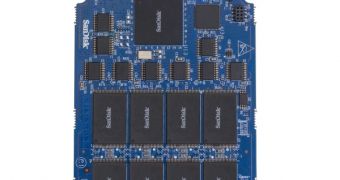Solid-state disks are already an important presence on the market, and almost any worth-mentioning notebook manufacturer provide its customers with a SSD option. The most important promoters are Apple (in their Macbook Air) and Sony (in the Vaio family).
The most important advantage of the SSDs over conventional spinning platters is the fact that they are extremely fast, since they do not use moving parts during the read/write process. Moreover, they are shock-proof, and there's a high chance your SSD will work even after it has been dropped from the top of a two-level building. It seems that the solid-state drive is immortal, so why bother thinking about recovery services?
Data loss occurs not only because of physical HDD "injuries", but also as a result of having formatted the wrong disk (it happened to me, and I am sure it also happened to others, too), or even because of a virus infection. Data recovery using software solutions is not possible all the time, and if hard-drives could merely be cracked open, then have their data read directly from their platters, the advent of SSDs have surely changed the game for the computer forensics.
Many data recovery tools were cross-compatible for the whole range of HDD manufacturers, so it was relatively simple to get data back no matter the affected disk was built by Maxtor, Seagate or Hitachi. I am afraid that the compatibility era is close to its end in the SSD market. Wear-leveling and other types of performance-boosting algorithms have made each disk unique, built on very complicated controller technology. The proprietary algorithms are not available for the data forensics, which makes mapping an address to the physical media impossible.
All in all, data recovery might be performed on solid-state drives, but you will have to search for a specialist depending on the disk's brand, rather than a general data recovery service provider.

 14 DAY TRIAL //
14 DAY TRIAL //